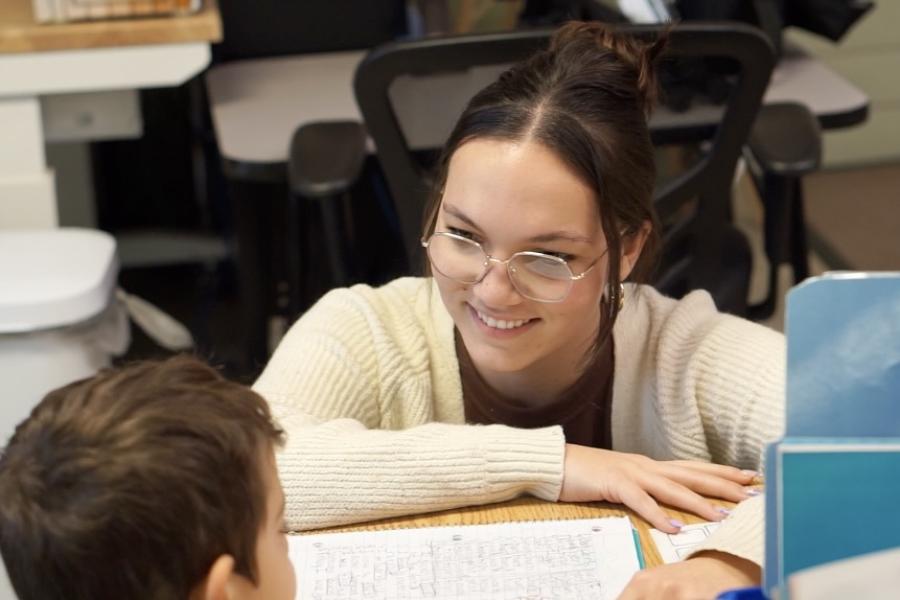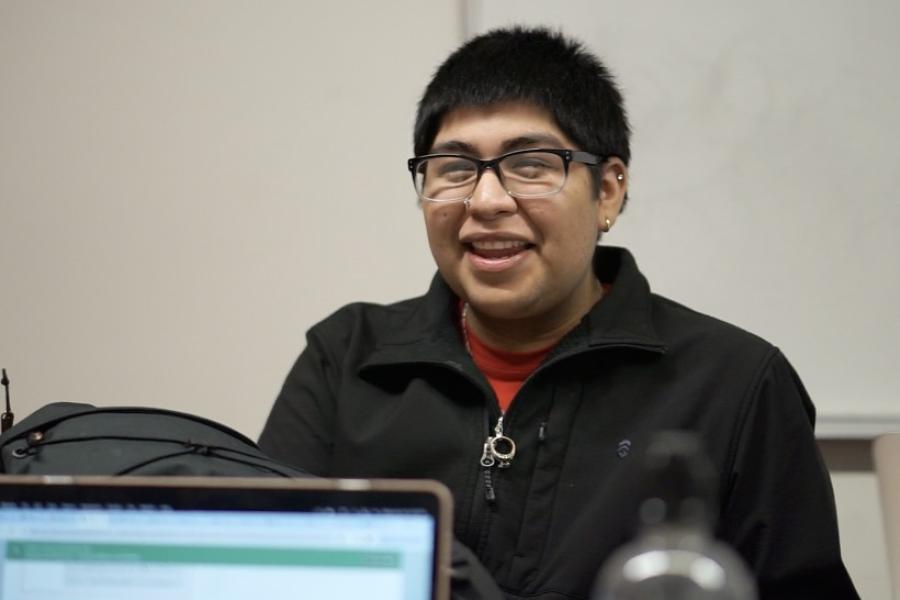The Special Education major within the College of Education and Human Development (CEHD) is an innovative and demanding preparation program preparing special education teachers to meet the unique needs of a diverse range of K-12 students with learning disabilities. Candidates are prepared to implement evidence-based instructional practices promoting access to and success in the general education curriculum through assessment, intentional instruction, and evaluation.
100%
of special education and literacy studies graduates working full time have a job related to their degree
100%
of special education and literacy studies graduates working full time are satisfied with their jobs
97%
of College of Education and Human Development undergraduates participated in experience-driven education
Pursue a B.S. in Special Education
Are you passionate about teaching? Do you want to help every child learn? Then the B.S. in Special Education is right for you.
Through the Department of Special Education and Literacy Studies, you will learn about the diverse range of disabilities, including their characteristics and impacts on learning, from intellectual disabilities and learning disabilities to autism spectrum disorder, emotional and behavioral disorders, and physical disabilities. The program equips you with practical skills in assessment and evaluation, enabling you to identify student strengths and needs to develop appropriate educational plans.
What you’ll learn
As a Special Education major, you'll learn about various disabilities and their impact on learning. You will study teaching strategies and accommodations to meet diverse needs; and how to develop and implement individualized education programs. Additionally, gain skills in collaboration and advocacy for students with disabilities.
If you want to be the most prepared teacher you can be coming out of your undergrad, Western Michigan University is the place to be.
Where you’ll be after graduation
Upon completion of this Bachelor of Science degree, you will be prepared to serve students with high-incidence disabilities, such as learning disabilities, and can work in a variety of educational settings. These settings can include inclusive classrooms where students with disabilities learn alongside their general education peers, resource programs offering specialized instruction and support, or self-contained classrooms designed for students requiring more intensive interventions.
For 95% of College of Education and Human Development grads, they got that job or got into that graduate school program after graduation. That is because your journey of self-discovery begins the moment you step on campus. At WMU's Career and Student Employment Services, career specialists help you align your passions and abilities with future careers and advanced degrees. They will connect you to practical experiences like internships, job shadowing, research projects and professional mentors.
What other have achieved
Learn about the successful journeys of recent program graduates and the advice they have to share for prospective WMU students.

Meet Alexis
To be the change she wanted to see in the world, Alexis is student teaching at King Westwood Elementary and uplifting children with learning disabilities.

Meet Moises
Co-President of the Future Teachers of Color RSO, Moises has helped students from diverse backgrounds come together and prepare them for success.
Making the most of your learning experience
In the College of Education and Human Development, you'll embark on an incredible journey of experiential learning that goes beyond textbooks. Collaborating closely with faculty members, you'll dive into cutting-edge research, fieldwork and professional pursuits. Pushing the boundaries of the traditional classroom, you'll gain practical skills and make a tangible impact.
As a special education major, you will be required to complete two full-semester internships under mentor teachers and WMU faculty, to prepare you for classroom teaching, reflective practice, school decision-making, and collaboration. You'll complete one semester in an elementary setting and one in special education. A weekly seminar supports each internship experience.
The program also includes semester-long, school-based practica, with field experiences in diverse urban, suburban, and rural settings at both elementary and secondary levels. This varied experience, coupled with university and school-based mentorship, prepares you for diverse schools and student populations.

Are scholarships available?
Yes! You've put in the hard work—now it's time to see your reward.
Scholarships are an excellent way to help the reduce the costs of higher education. Whether you are entering college for the first time, transferring to WMU from another institution or returning from a gap in your education, be sure to check out our scholarship options. Students earn scholarships for financial need, academic success and promoting multicultural awareness. Most are offered on a competitive basis.
Additional admissions requirements
Students entering WMU's education programs are initially classified as, Pre-Education. To enter the Special Education program, you must meet specific requirements and apply. Until accepted into the program, you cannot take upper-level education courses.





